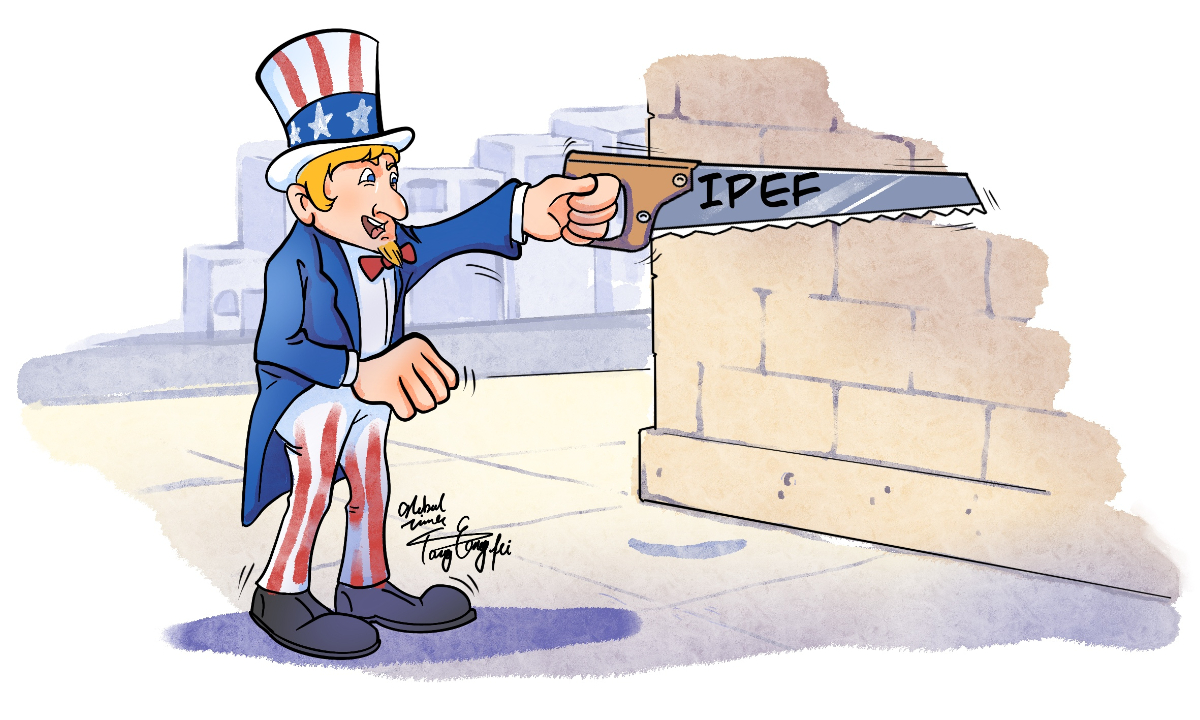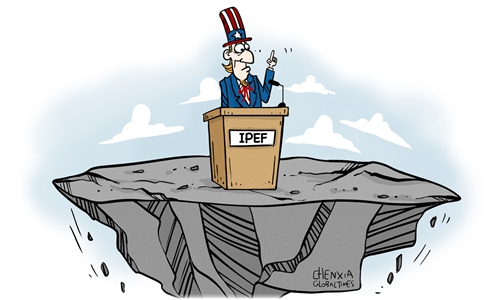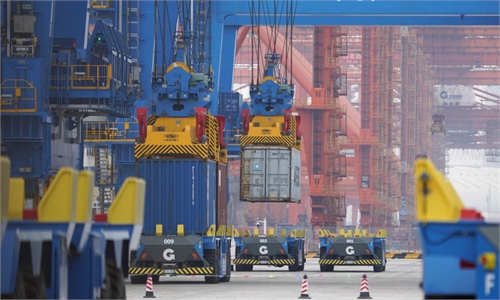
Illustration: Tang Tengfei/Global Times
The conspicuous absence of India in the trade pillar, one of the four pillars of the US-led Indo-Pacific Economic Framework (IPEF), underlines the dispute between India and the US regarding the mechanism, a US-led geopolitical tool in disguise of economy issues, and implies an uncertain future of the framework.India has stayed out of the trade pillar, it announced after the IPEF ministerial meeting in Los Angeles. India's Union Commerce Minister Piyush Goyal cited concerns over possible discrimination against developing economies.
India was the only one of the 14 IPEF countries, which include South East Asian countries, Australia, New Zealand, South Korea and Japan, not to join the declaration on trade.
Explaining the reason behind the decision, Goyal said that there are certain areas in which a broader consensus is yet to emerge, and India has yet to see what benefits member countries will derive from various aspects of the trade pillar, according to media reports.
India's wait-and-wait stance toward the IPEF deal shows the different interests of India and the US, and is a testimony to the fact that the Western hype of "the US succeeded in winning over India" and "decoupling of China-India trade" are nonsense. The prospect of IPEF faces uncertainty as the US has irreconcilable major differences with other economies on issues like market access, tariff reduction, and trade liberalization.
Goyal said that Indian officials will be participating in the discussions with an open mind, meanwhile stressing that such talks will be "in the best interests of the Indian people and businesses in India." It is foreseeable that the US-India negotiation on trade under the IPEF is likely to go nowhere as the US is not willing to make substantive concessions on economy and trade issues of concern to India.
India did not join the trade pillar of IPEF for now mainly because India is unlikely to accept the principle of reciprocity that the US has demanded in trade negotiations. The US standards in terms of technology, labor, and environment are also deemed to be unacceptable to India.
Although there have been discussions for years that India and the US would enter into negotiations for a free trade agreement (FTA), the deal still remains a non-starter as of today. The US has been making harsh demands on market access for agricultural products, patent legislation and data protection rules that India cannot accept. On the other hand, India's appeal to seek facilitation for the export of goods such as cars, machinery and agricultural products to the US is also unlikely to receive a response.
Five years after the US withdrew from the Trans-Pacific Partnership (TPP), the Biden team came back to the Asia-Pacific region with the so-called IPEF. However, the framework seems more like a geopolitical tool to divide regional economic and trade cooperation. What's almost sure is that the US cannot woo India only with rhetoric.
No matter how many IPEF trade talks the US will hold, it remains questionable whether the country will show real sincerity to open its market. Rational voices in India have warned that it is best not to be too optimistic about the IPEF.
Indian foreign minister Subrahmanyam Jaishankar said recently that an Asian Century will only happen when China and India will come together. Obviously, India knows well that regional cooperation is of interest to the Indian economy. Hopefully India, an increasingly important Asian economy, won't fall into the "decoupling" trap dug by the shrewd politicians in Washington.
Admittedly, there is competition and even differences on some issues between China and India, but the two sides can resolve all differences in the spirit of mutual respect, and the common interests between them far outweigh their differences.
Trade between India and China reached $125.6 billion in 2021, according to official customs data, and this is the first time the bilateral trade has exceeded the $100 billion mark. This shows that China-India economic and trade cooperation has a solid foundation and huge potential for future development. India should cherish the mutually beneficial economic and trade relations with China and take steps to enhance this cooperation.
The author is a reporter with the Global Times. bizopinion@globaltimes.com.cn


